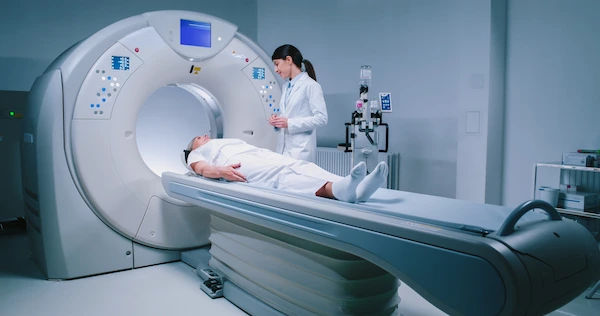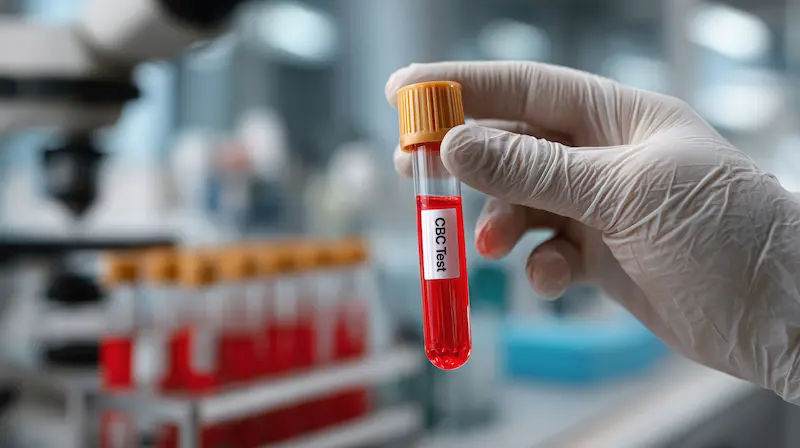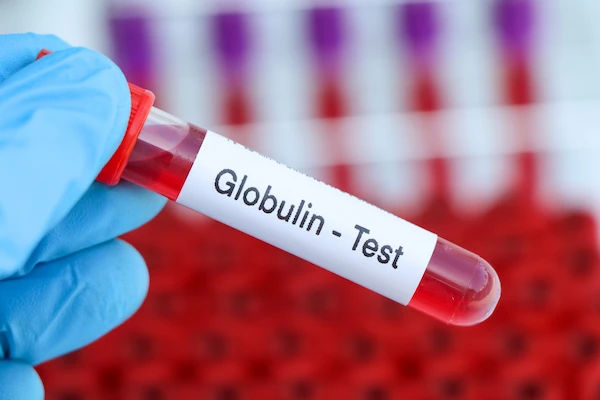Eosinophils: Normal Range and Implications
Learn about eosinophils, their role in the immune system, and what their normal range is. Understand what high or low eosinophil levels may indicate about your health.

Written by Dr. Siri Nallapu
Reviewed by Dr. J T Hema Pratima MBBS, Fellowship in Diabetes Mellitus
Last updated on 13th Aug, 2025

Eosinophils are a type of white blood cell that play an important role in your immune system. They help fight infections, especially those caused by parasites, and are also involved in allergic reactions and inflammation. Understanding your eosinophil count can provide valuable insights into your health.
In this article, we’ll discuss what eosinophils are, the normal range of eosinophils, what high or low levels mean, symptoms to watch for and when to see a doctor.
What Are Eosinophils?
Eosinophils are a part of your body’s defense system. They make up a small percentage of your white blood cells and are produced in the bone marrow. Their main functions include:
- Fighting parasitic infections
- Responding to allergic reactions
- Playing a role in inflammation (especially in asthma and eczema)
A blood test called a Complete Blood Count (CBC) with differential measures eosinophil levels along with other white blood cells.
Consult a Top Specialist
Normal Range of Eosinophils
In a healthy adult, eosinophils typically make up 1% to 4% of your total white blood cells. The absolute count (number of eosinophils per microliter of blood) is usually between 30 to 350 cells/µL.
- Normal range: 30–350 cells/µL
- Mild elevation: 350–1,500 cells/µL
- Moderate to severe elevation: Above 1,500 cells/µL
Levels can vary slightly depending on age, lab standards, and individual health conditions.
What Does a High Eosinophil Count Mean? (Eosinophilia)
A higher-than-normal eosinophil count is called eosinophilia. It can be caused by:
Common Causes of High Eosinophils
1. Allergies & Asthma – Pollen, dust mites, pet dander, or food allergies can trigger an increase.
2. Parasitic Infections – Intestinal worms or other parasites.
3. Autoimmune Disorders – Conditions like eosinophilic esophagitis (EoE) or vasculitis.
4. Skin Conditions – Eczema or dermatitis.
5. Medications – Some antibiotics or anti-seizure drugs.
6. Certain Cancers – Rarely, blood cancers like leukemia.
Symptoms of High Eosinophils
Below are the symptoms of high eosinophils,
- Persistent coughing or wheezing (asthma-like symptoms)
- Skin rashes or itching
- Stomach pain, diarrhea (if due to parasites)
- Difficulty swallowing (in eosinophilic esophagitis)
What Does a Low Eosinophil Count Mean? (Eosinopenia)
Low eosinophil levels are less common but may occur due to:
- Stress or steroid use (cortisone medications suppress eosinophils)
- Severe infections (like sepsis)
- Alcohol abuse
Low levels alone are rarely a major concern unless linked to other health issues.
When Should You See a Doctor?
Consult a doctor if you experience:
- Unexplained fatigue, weight loss, or fever
- Persistent allergies, asthma flare-ups, or skin rashes
- Digestive issues like difficulty swallowing or chronic diarrhea
Your doctor may recommend:
- Blood tests (CBC with differential)
- Stool tests (to check for parasites)
- Allergy testing
- Biopsy (if eosinophilic esophagitis is suspected)
Get Your Health Assessed
How to Manage Eosinophil Levels?
If your eosinophil count is high, your doctor will treat the underlying cause. However, some lifestyle changes can help:
1. Manage Allergies
- Identify and avoid triggers (dust, pollen, certain foods).
- Use antihistamines or nasal sprays as prescribed.
2. Prevent Parasitic Infections
- Drink clean, filtered water.
- Wash hands before eating.
- Cook meat thoroughly.
3. Anti-Inflammatory Diet
- Eat more fruits, vegetables, and omega-3-rich foods (fish, flaxseeds).
- Reduce processed foods and sugar.
4. Stay Hydrated & Exercise
- Regular physical activity supports immune health.
- Drink plenty of water to help flush toxins.
When to Get Tested?
If you have unexplained symptoms or a history of allergies, infections, or autoimmune conditions, a simple CBC test can check your eosinophil levels.
Need a test? You can easily book a Complete Blood Count (CBC) with Differential test on Apollo 24|7 from the comfort of your home.
Final Thoughts
Eosinophils are essential for immunity, but abnormal levels can signal health issues. While mild fluctuations are common, persistent high or low counts need medical attention. If you’re experiencing related symptoms, consult a doctor for proper diagnosis and treatment.
Consult a Top Specialist
Consult a Top Specialist

Dr. Chaithra H
General Physician/ Internal Medicine Specialist
6 Years • MBBS, MD General Medicine, DNB General Medicine
Bangalore
Apollo 24|7 Clinic - Karnataka, Bangalore

Dr. Mohammed Kamran
General Practitioner
5 Years • MBBS, FIDM
Nashik
Apollo 24|7 Clinic - Maharashtra, Nashik

Dr. Jawwad Mohammed Kaleem
General Practitioner
4 Years • MBBS
Hyderabad
Apollo 24|7 Clinic, Hyderabad

Dr Divya Lekha Gunta
General Practitioner
10 Years • MBBS, MD (Pathology)
Visakhapatnam
Apollo 24|7 Clinic - Andhra Pradesh, Visakhapatnam

Dr. Siri Nallapu
General Practitioner
5 Years • MBBS
Hyderabad
Apollo 24|7 Clinic, Hyderabad
Consult a Top Specialist

Dr. Chaithra H
General Physician/ Internal Medicine Specialist
6 Years • MBBS, MD General Medicine, DNB General Medicine
Bangalore
Apollo 24|7 Clinic - Karnataka, Bangalore

Dr. Mohammed Kamran
General Practitioner
5 Years • MBBS, FIDM
Nashik
Apollo 24|7 Clinic - Maharashtra, Nashik

Dr. Jawwad Mohammed Kaleem
General Practitioner
4 Years • MBBS
Hyderabad
Apollo 24|7 Clinic, Hyderabad

Dr Divya Lekha Gunta
General Practitioner
10 Years • MBBS, MD (Pathology)
Visakhapatnam
Apollo 24|7 Clinic - Andhra Pradesh, Visakhapatnam

Dr. Siri Nallapu
General Practitioner
5 Years • MBBS
Hyderabad
Apollo 24|7 Clinic, Hyderabad



.webp)

